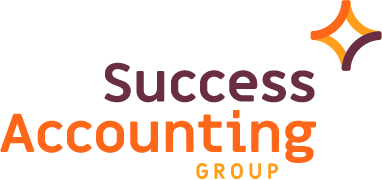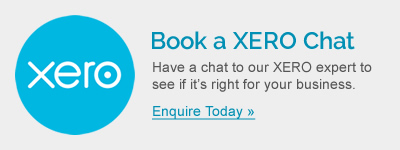Strategies to Minimise Your Personal Tax: 2025 Tax Planning Guide
Now’s the time to review what strategies you can use to minimise your tax before 30 June 2025.
Imagine what you could do with the tax saved. You could:
- Reduce your home loan
- Top up your super
- Save for a holiday (when we can travel again)
- Deposit for an Investment Property
- Pay for your children’s education
- Upgrade your car
The most important thing to remember is that there is no point in spending money to get a tax deduction unless it’s going to result in something useful for you.

16 Ways to Reduce Your Tax
With super contributions taxed at a maximum of 30% and investment earnings in super taxed at a maximum of 15%, both these tax points are more favourable when compared to the highest marginal tax rate of 47% (including the Medicare levy).
HOME OFFICE EXPENSES
If you have been working from home, you may have expenses you can claim a tax deduction for. The ATO allows you to claim, using a “Revised Fixed Rate Method” an amount of $0.67 per work hour for the 2025 year. This amount covers most expenses from working from home, and you need to keep a detailed record of how you calculated the number of hours you are claiming. You can also claim expenses using an “Actual Cost” method—so please keep all invoices and receipts during the entire year to prove all claims.
SUPERANNUATION CONTRIBUTIONS
While you might not be flush with cash now and able to put large amounts into superannuation, it’s important that you are aware of what is possible to maximise your super balance and possibly reduce your tax at the same time.
DEDUCTIBLE SUPER CAP OF $30,000 FOR EVERYONE
The tax-deductible super contribution limit (or “cap”) is $30,000 for all individuals under age 75. Individuals need to pass a work test if over age 67.
To save tax, consider making the maximum tax-deductible super contribution this year before 30 June 2025. The advantage of this strategy is that superannuation contributions are taxed at between 15% and 30% compared to typical personal income tax rates of between 32% and 47%.
CARRIED FORWARD CONTRIBUTIONS
Carry-forward contributions are not a new type of contribution; they are simply new rules that allow super fund members to use any of their unused concessional contributions cap on a rolling basis for five years.
This means if you don’t use the full amount of your concessional contribution cap ($25,000 from 2020 to 2021 and $27,500 from 2022 to 2024), you may qualify to carry-forward the unused amount and take advantage of it up to five years later.
Carry-forward contributions are calculated on a rolling basis over five years, but any amount not used after five years expires. These carry-forward rules only relate to concessional contributions into super, not non-concessional contributions, as they have different caps.
After this year, any unused 2020 concessional contributions cap will be lost forever—so now is the time to carefully consider this!
SPOUSE SUPER CONTRIBUTIONS
You can make super contributions on behalf of your spouse (married or de facto), provided you meet eligibility criteria, and your super fund allows it. This is known as contribution splitting.
Doing this not only helps to boost your spouse’s retirement savings, but it can also help you save tax if your spouse has limited income.
You may be eligible for a tax offset of up to $540 on super contributions of up to $3,000 that you make on behalf of your spouse if your spouse’s income is $37,000 p.a. or less.
The offset gradually reduces for income above $37,000 p.a. and completely phases out at $40,000 p.a. and above.
ADDITIONAL TAX ON SUPER CONTRIBUTIONS BY HIGH INCOME EARNERS
The income threshold at which the additional 15% (‘Division 293’) tax is payable on Super $250,000 p.a. Where you are required to pay this additional tax, making super contributions within the cap is still a tax-effective strategy.
GOVERNMENT CO-CONTRIBUTION TO YOUR SUPER
If you are on a lower income and earn at least 10% of your income from employment or carrying on a business and make a “non-concessional contribution” to super, you may be eligible for a Government co-contribution of up to $500.
In 2025, the maximum co-contribution is available if you contribute $1,000 and earn $45,400 or less. A lower amount may be received if you contribute less than $1,000 and/or earn between $45,400 and $60,400.
OWNERSHIP OF INVESTMENTS
A longer-term tax planning strategy can be reviewing the ownership of your investments. Any change of ownership needs to be carefully planned due to capital gains tax and stamp duty implications. Please seek advice from your Accountant prior to making any changes.
Investments may be owned by a Family Trust, which has the key advantage of providing flexibility in distributing income on an annual basis and an ability for up to $416 per year to be distributed to children or grandchildren tax-free.
PROPERTY DEPRECIATION REPORT
If you have an investment property, a Property Depreciation Report (prepared by a Quantity Surveyor) will allow you to claim depreciation and capital works deductions on capital items within the property and on the property itself.
The cost of this report is generally recouped several times over by the tax savings in the first year of property ownership.
MOTOR VEHICLE LOGBOOK
Ensure that you have kept an accurate and complete Motor Vehicle Logbook for at least a 12-week period. The start date for the 12-week period must be on or before 30 June 2025. You should make a record of your odometer reading as of 30 June 2025 and keep all receipts/invoices for your motor vehicle expenses. Once prepared, a logbook can generally be used for a 5-year period.
An alternative (with no logbook needed) is to simply claim up to 5,000 business kilometres (based on a reasonable estimate) using the cents per km method.
SACRIFICE YOUR SALARY TO SUPER
If your annual income is $45,000 or more, salary sacrifice can be a great way to boost your superannuation and pay less tax. By putting pre-tax salary into super rather than having it taxed as normal income at your marginal rate, you may save tax. This can be especially beneficial for employees nearing their retirement age.
PREPAY EXPENSES AND INTEREST
Expenses relating to investment activities can be prepaid before 30 June 2025. You can prepay up to 12 months of interest before 30 June on a loan for a property or share investment and claim a tax deduction this financial year. Also, other expenses in relation to your investments can be prepaid before 30 June, including rental property repairs, memberships, subscriptions, and journals.
INSURANCE PREMIUMS
Possibly your greatest financial asset is your ability to earn an income. Income Protection Insurance generally replaces up to 75% of your salary if you are unable to work due to sickness or an accident. The insurance premium is normally tax deductible, plus you get the benefit of protecting your family’s lifestyle if you cannot work due to sickness or an accident. It’s a small price to pay for peace of mind. Like rental property interest, income protection premiums can also be prepaid for 12 months to increase your deductions.
WORK RELATED EXPENSES
Don’t forget to keep any receipts for work-related expenses such as uniforms, training courses and learning materials, as these may be tax-deductible.
REALISE CAPITAL LOSSES
Tax is normally payable on any capital gains. You should consider selling any non-performing investments you hold before 30 June 2025 to crystallise a capital loss and reduce or even eliminate any potential capital gains tax liability. Unused capital losses can be carried forward to offset future capital gains.
DEFER INVESTMENT INCOME & CAPITAL GAINS
If practical, arrange for the receipt of Investment Income (e.g. interest on term deposits) and the Contract Date for the sale of Capital Gains assets, to occur AFTER 30 June 2025.
The Contract Date (not the Settlement Date) is generally the key date for working out when a sale or purchase occurred.
This article is provided as general information only and does not consider your specific situation, objectives or needs. It does not represent accounting advice upon which any person may act. Implementation and suitability require a detailed analysis of your specific circumstances. © Success Accounting Group | Updated 6 May 2025

About Lan Nguyen
Lan is the Founder and Chief Strategist at Success Accounting Group, Melbourne based CA firm. In a matter of short 8 years she has built up a reputable Chartered accounting firm with 3 offices and a team of 6 professional accountants and support team members. Her mission is to provide Innovative and Strategic Financial advice to help her customers make smarter financial decisions today for a brighter future.
Success Accounting Group is for established business owners who would like help to grow a sustained business. As a business owner you understand what drives your business success with our accounting team taking care of the rest.




